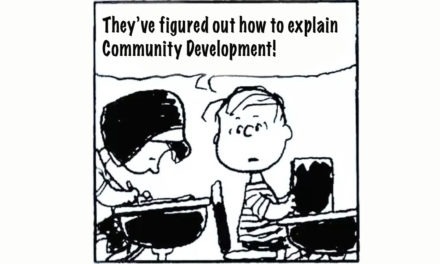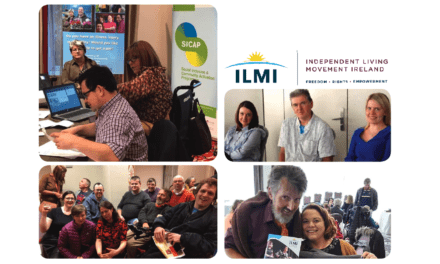NATIONAL policy is making rural poverty worse, according to a recent study on poverty and social exclusion in Co Clare.
The report, ‘Towards an Anti-Poverty Strategy for Clare’, by economist and researcher Dr Conor McCabe, also found there is a chronic lack of county-level data or research on poverty and marginalisation in Clare.
The nine-month participatory research project, the first county-level research of its kind in Ireland, was undertaken by groups led by people who experience poverty and social exclusion in Clare.
Under the umbrella of Clare Public Participation Network (PPN) they secured funding from IHREC’s Human Rights and Equality Grants Fund. With the guidance of Dr McCabe, they used their own lived experience and perspectives to analyse poverty in Clare and the policy context in which it happens.
The report found that although Clare is experiencing a severe housing crisis, there is a housing vacancy rate of 17%. It also revealed that 33% more GPs are required to bring Clare in line with the national average.
Mary O’Donoghue of West Clare Family Resource Centre said “As one person involved in the project commented: ‘Clare is not Alaska – we’re an hour from two major cities and three hours from the capital, with a growing population. There is no reason services and infrastructure can’t or shouldn’t be provided here.’”
She continued: “We don’t want to be running food banks, we want solutions and a fair chance for all the people in our communities. Our organisations can advocate for social welfare increases and we can do our best to plaster over the cracks, but this won’t compensate for a lack of equal access to health services, transport, housing, childcare or sustainable employment. The report shows us that even to be on a par with the national average we need 50 per cent more dentists and 33 per cent more GPs in Clare.”
Bridgie Casey, Co-ordinator of Clare Traveller Community Development Project, expressed her shock at the high housing vacancy rate uncovered in the report: “We have families in Clare living in overcrowded conditions, children growing up in hotel rooms, or without running water, and to learn that there are more than 10,000 houses lying idle around Clare at the same time really tells us the system is not working for the people of Clare.”
Sarah Clancy, Co-ordinator of Clare PPN, noted: “With the focus now on regional development the specifics of local situations find little reflection in policy. Strategies that tell us that the Mid West is doing well don’t reflect the situation in our small towns and rural communities.’’
The topic of housing dominated the group interview sessions, with one participant in Kilrush commenting on the issue of house prices rising in seaside towns popular with holidaymakers.
They said: “‘First of all you can forget about buying a house in West Clare. You would want to be on a CEO’s pay, you’re not going to get it. The price of houses is shocking high. I’d say in west Clare there’s about a 1,000 [houses] that would be holiday homes, but there’s no proper social housing at all.”
Kathleen Sherlock of the Minceir Whidden group said in 2021 that as many as half of the people declaring themselves as homeless in the county were from the Travelling community, despite Travellers accounting for less than one per cent of Clare’s total population.
The suicide rate among Travellers is also seven times that of the settled population. One survey participant talked of how Traveller children are playing ‘funeral’ with their toys: “On one particular site where there have been a lot of suicides, I’ve seen children, six, seven, eight, nine years of age, putting on an act with a cardboard box, putting a doll into the box, pretending that it was one of their children, and they’re carrying the box over their shoulder, pretend crying, saying ‘please get up, please get up’. These are children watching what they’ve seen and play-acting it.”
Regarding the shortage of dentists in the county, another Kilrush resident told researchers: “At the moment you can’t get a dentist in west Clare. If you’re on a medical card it looks like the nearest dentist that will take you on if you are new to [the scheme] is in Limerick. They’ve stopped taking medical cards full stop.”
Another said: “Doctors are not taking people on. I know one family that just moved [into Kilrush], they tried every doctor, they can’t get one.”
The downgrading of Ennis hospital and the relocation of services to UHL in Limerick was another issue raised by participants.
“There are no Clare babies anymore, it’s either Limerick or Galway for the maternity depending on where you live. And this is not something that happened yesterday. You’re talking about over a 20-year period. In general for medical services it’s Limerick or Galway, or if you’re in East Clare you go to Tipperary for your healthcare,” said one Ennis resident.
The groups involved in the report included: Clare PPN, Women’s Collective Ireland Clare, Clare Immigrant Support Centre, Clare Leader Forum, West Clare and Shannon Family Resource Centres, and Clare Traveller Community Development Project.
To read the report in full, go to: https://clareppn.ie/towards-an-anti-poverty-strategy-for-clare/
The key findings of the report included:
- The population in almost all areas of Clare is growing but policy-making in relation to Clare does not yet reflect this.
- There is a lack of information on, and future planning for, the sustainable livelihoods and wellbeing of the people of Clare as apart from the ‘Mid West region’ or ‘southern assembly region’.
- From the perspective of those who experience socio-economic exclusion, County Clare is being poorly served by policy-makers at national and, as a result, at local level.
- A person’s socio-economic rights in Ireland are affected by their location in the country – with basic services, infrastructure and opportunities unavailable in some locations and available unequally in others.
- There is a crisis in all types of housing in Clare – social, rental and privately owned.
- There is a particular crisis for the Traveller community who face particular discrimination in accessing services, housing and supports.
- There is no national, regional or local policy for achieving a real ‘just transition’ as Ireland navigates its way towards lower carbon emissions, and Clare is one of the counties most likely to experience poverty-exacerbating effects from this transition.
- There is an inequality in provision of health services between Clare and other regions, with 33% more GPs and 50% more dentists needed even to put Clare on a par with the national average.
- There are stark differences in how health and care services are delivered in Clare and other counties.
- There is no evidence that the gendered nature of poverty in Clare receives special attention in policy-making.
- Disabled people in Clare are at particular disadvantage because of failures in national policy to guarantee their rights – in particular as regards accessible public transport and transport funding supports.
- In many areas of Clare there has been a diminishment in and centralisation of services and supports available to marginalised groups with negative consequences.
- There are key failures at national and local level in measuring poverty.
The report made the following proposals:
- Identify and remedy the gaps in information and data relating to Clare; policies should be based on evidence, and data gathering should be underpinned by a commitment to protect and enhance human rights, including socio-economic rights.
- Review the National Development Plan as it relates to Clare, a regional approach as currently mandated serves to disenfranchise large areas of Clare from accessing the investment and sustainable economic development needed.
- Clare needs a dedicated social housing action plan. The housing situation outlined in this report is chaotic – a story of record homelessness alongside thousands of vacancies in the county. This action plan must include planning for population increases and changing demographics including the needs of ageing rural dwellers.
- As agreed in the programme for government the Direct Provision System must be phased out and replaced by adequate supports for those seeking protection here to live independent lives – it in itself is a direct cause of poverty, child poverty and marginalisation, particularly in rural areas.
- Health services in Clare need to be localised or re-localised, and commitments made by Government to ensure that the people’s right to health is realised through sufficient provision of the service levels enjoyed in other counties.
- The charity model of service provision needs to be replaced by a human rights-based model where all public and publicly funded bodies are designed to meet the needs of individuals and their communities.
- Clare needs a jobs investment plan – in social services and green transition there is work that needs to be done in Clare, this must be provided for in terms of creating sustainable decent work for people living in Clare.
- Clare needs to adopt a model of development which ensures a properly defined just transition strategy – in particular for farming communities but also for all those likely to be adversely affected by climate action or climate change.
- Clare needs a county-wide effective and accessible public transport system.





